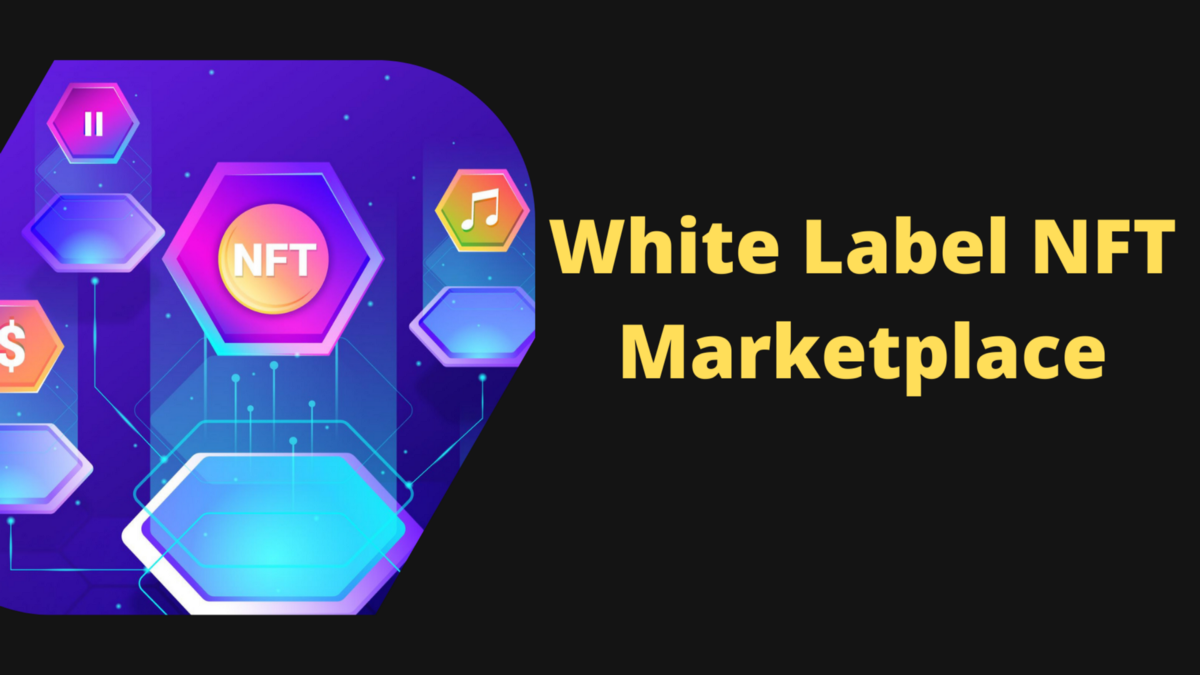NFT Marketplace With White Label
White Label NFT Marketplace is a clone of NFT Marketplace which can be customized as per your specifications. With all its basic end-to-end functions, White Label NFT Marketplace is fully customizable. The NFT Marketplace create to allow the listing of NFTs in the digital world. The mined NFTs will be a digital asset, such as music, art, photography, video, metaverse, or any other type of digital collectible. In exchange for crypto, the creators of these digital assets will list them as NFTs on any marketplace.
Development of White Label NFT Marketplace
White Label NFT Marketplace is based on a clone script that can customize to meet the needs of the client. If we talk about the majority of the NFT marketplace, build on the Ethereum, Binance Smart Chain, and other blockchain networks.
Since the White Label NFT Marketplace builds using clone scripts, it deploys quickly and at a low cost, prompting entrepreneurs and merchants to launch their own White-Label NFT Marketplace in the crypto space. The White Label NFT market is mainly develop in the order listed below.
- Designing a user interface
- Establish a Blockchain Network
- Development of Tokens
- Smart contract programming
- IPFS storage integration
- Beta testing is the process of putting a product
- Deployment
UI Development – Create the most attractive and user-friendly UI possible, as it will give users the first impression of your NFT platform, and an easily accessible user interface will benefit you if you have a large number of active users.
Select a Blockchain Network for your NFT Marketplace – You can create your NFT Marketplace on any of the available Blockchain networks. Most of the NFT exchanges are based on Ethereum, Binance Smart Chain, Cardano, Solana, and Polygon.
Token Standardization – A token standard should be created for NFTs listed on the market. The token can be standard 721 or 1155, and the tokens created are end-to-end encrypted.
Smart Contract Coding – Smart contracts are used to monitor and process operations and transactions in a decentralized marketplace. The ultimate task of developers is to code for all the modes of operation of the market.
With Alluring Features, Drive Traffic To The White Label NFT Marketplace
Storefront — With the first impression of your marketplace, passers-by become active users of your marketplace. Users will flock to your marketplace if you create the most appealing storefront with all of the features.
Auction — Putting the NFT up for auction and selling it for the best price is the most popular feature among users. This would keep your users for a long time and bring in new ones when it came to NFTs on auction.
Security — This is the most important factor to consider because the marketplace must earn users’ trust. Developing a secure marketplace with DDOS, CSRF, SSRF, and other features to prevent invasive hack attacks will earn your trust and ensure that the marketplace is free of cyberattacks.
Dashboard — A very informative dashboard for both users and administrators. Users would be able to access all of the NFTs’ information, as well as their previous history in transactions and listings for each and every NFT.
NFT White Label Marketplace is a Well-known White-label Marketplace
Developing an NFT marketplace will save you money in terms of development costs and time. However, creating an NFT marketplace using a popular clone script such as Opensea clone or Rarible clone would benefit you much more in terms of increasing traffic to your marketplace. It will benefit your marketplace with many new features if you develop it from a popular clone. Because of their listed features, most people in the global market use an OpenSea vs Rarible. Check out the previous blog if you’re interested in learning how to create an NFT marketplace.
Opensea Clone
The NFT marketplace OpenSea clone buid on the Ethereum blockchain network. With its secure platform, the OpenSea clone facilitates everything from minting to selling your NFT. The OpenSea clone has been smart contract audited, and it has a multichain feature that allows it to run different blockchain networks such as Ethereum, Binance smart chain, Solana, and Polygon.
White Label NFT Marketplace Advantages
With the history of data for each NFT and the user’s history, developing an NFT marketplace would benefit you.
Smart contract audited — The marketplace has undergone a smart contract audit, and all bugs and vulnerabilities have been addressed.
Quick deployment — Because there is less time spent developing and fixing bugs, the marketplace can be launched quickly.
Scalability — With 50,000+ active users on the marketplace, the developed NFT marketplace will continue to run smoothly.
Underlying Usefulness of Launching a White Label NFT Marketplace
All the interested entrepreneurs and startups should consider launching an NFT marketplace to win the market. As more and more young people become interested in cryptos and NFTs, all digital assets will be converted to NFTs in the future. Because of the time and cost involved in developing an NFT marketplace from scratch, most people prefer to use an NFT marketplace. To learn about the entire development process of how a marketplace develops, read the blog How to Create an NFT Marketplace.
Conclusion
Launching a white label NFT will bring you millions of dollars because NFT is at its peak, attracting a large number of young users from all over the world. If you have an idea for an NFT platform, contact Suffescom to develop it. Suffescom, the industry’s leading White Label NFT development firm, has completed more than 50 projects on the Ethereum, Binance Smart Chain, Cardano, Solana, and Polygon blockchain networks.


